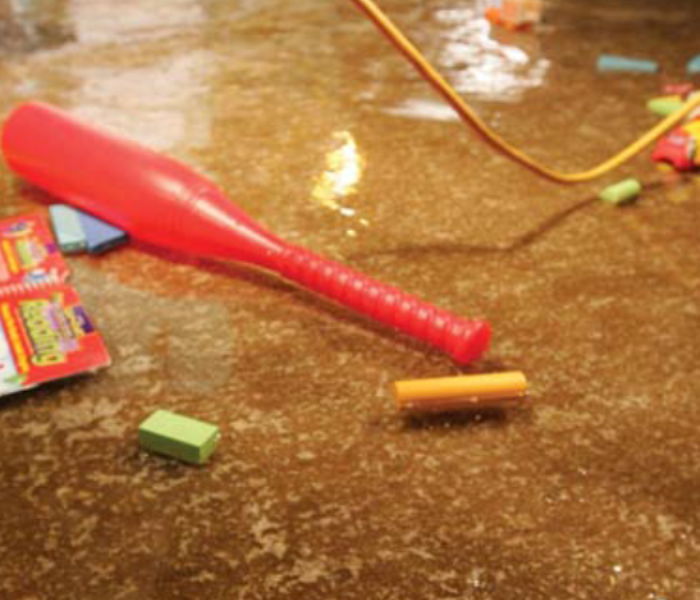What To Do Until Help Arrives
11/21/2015 (Permalink)
EMERGENCY TIPS FOR YOUR HOME
Please follow these DOs and DON’Ts to help reduce damage and increase the chances of a successful restoration.
CLEAN WATER DAMAGE
DO:
Shut off the source of water if possible or contact a qualified party to stop the water source.Turn off circuit breakers for wet areas of the building, when access to the power distribution panel is safe from electrical shock.Remove as much excess water as possible by mopping and blotting.Wipe excess water from wood furniture after removing lamps and tabletop items.Remove and prop up wet upholstery cushions for even drying.Place aluminum foil or wood blocks between furniture legs and wet carpeting.Remove to a safe, dry place any paintings, art objects, computers, documents and other materials that are valuable or sensitive to moisture.Use wooden clothespins to keep furniture skirting off damp floors.Hang draperies with coated hangers to avoid contact with wet carpeting or floors.Hang furs and leather goods to dry separately at room temperature.DON'T
Enter rooms with standing water where electrical shock hazards may exist.Enter affected areas if electrical outlets, switches, circuit breakers or electrical equipment are exposed to water. Always avoid electrical shock hazards.Leave books, newspapers, magazines or other colored items on wet carpets or floors to cause staining.Leave Oriental rugs or other colored rugs on wet wall-to-wall carpets to cause staining.Use your household vacuum cleaner to remove water, possibly causing electrical shock or damage to the vacuum cleaner.Use TVs or other appliances while standing on wet carpets or floors, especially not on wet concrete floors.Turn on ceiling fixtures if ceiling is wet or enter rooms where ceilings are sagging from retained water.CONTAMINATED WATER DAMAGE
DO
Avoid all contact with sewage and items contaminated by sewage.Wash your hands thoroughly after contact with contaminated items.DON'T
Spread contaminated water by walking unnecessarily on damaged or wet areas.Turn on the HVAC system if there is a possibility of spreading contaminated air.Use household fans to dry the structure and spread contaminants.Use products for personal hygiene and cleanliness if exposed to the contaminated areas.HARMFUL WASTE
DO
Stay out of affected areas.Call emergency service personnel if the situation is life-threatening.Treat all bodily fluids as if they are contaminated.DON'T
Attempt cleanup of any kind.Touch or handle items that might be contaminated with bodily fluids.






 24/7 Emergency Service
24/7 Emergency Service
